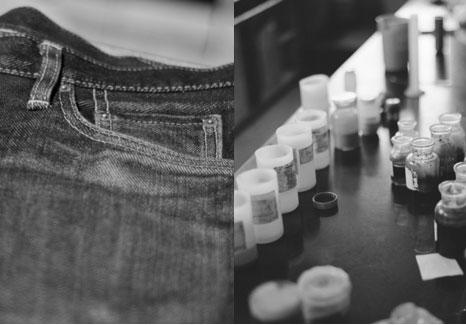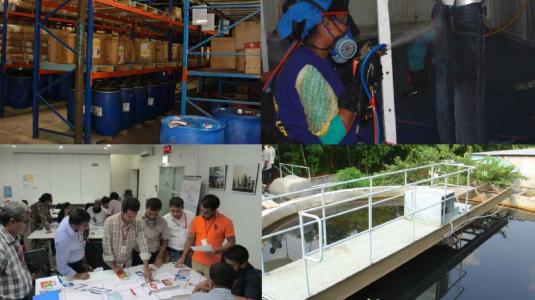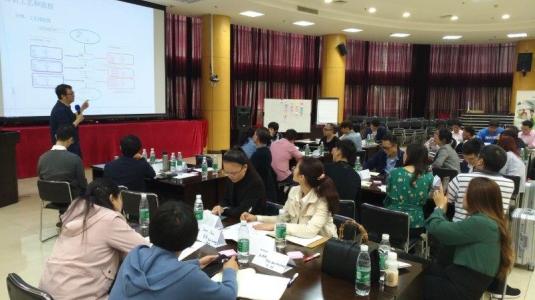Advanced Training Program for Chemical Management in Textile Wet Processes

© Advanced Training Program for Chemical Management in Textile Wet Processes
The Advanced Training Program aims to support wet processing plants in China and Bangladesh in establishing detox-compliant chemical management. The program was initiated by Tchibo GmbH, Rewe Group and GIZ within the develoPPP.de program of the German Federal Ministry for Economic Cooperation and Development and in cooperation with the Partnership for Sustainable Textiles.
The Training aims to provide the knowledge and practical skillset required to replace hazardous chemicals in the wet processing units in a comprehensible way.
The Advanced Training Program is a combination of classroom training and on-site visits. Target of the classroom trainings is to raise awareness and teach general knowledge on the subject. During the factory visits, consultants will then further introduce the program, identify gaps between the operations and best practices, develop a management action plan with the factory and consult on any challenges regarding the implementation. Incorporated into the training is also a train the trainers scheme which helps to increase chemical management capacity in the region. The complete training program will run over approximately 12 months from kick-off to completion.
The content of the training materials are based on the GIZ Resource Efficient Management of Chemicals" (REMC) Toolkit and closely follow the recommended structure and content of the Zero Discharge of Hazardous Chemicals (ZDHC) Chemical Management System Guidelines. Currently, the training materials are available in English, Chinese and Bengali.
Lessons learnt
- Ability to improve the facility’s environmental system by using a Management Action Plan.
- Comprehensive understanding of the regulatory environment of chemicals.
- Analysis And Documentation Of Material Chemical Flows In the Company
- Learning what a chemical inventory should cover and applying knowledge into practice
- Comprehensive understanding of the skillset required and typical roles and responsibilities in wet processing units to substitute hazardous chemicals in production processes
- Understanding of good chemical procurement practices, including guidance on how to develop chemical procurement policies.
- Gaining knowledge on hazards, risks, exposure and effects of chemicals and how to assess risks.
- Understanding of good waste management practices.
- Understand requirements on Wastewater Management and testing.
- Understanding of Wastewater Treatment Plant WWTP designs, treatment technologies and the sequence of treatments.
- Introduction to the six steps to chemical substitution.
- Understand the opportunities from Best available techniques BAT and get to know more sustainable alternatives
- Understanding the benefits from monitoring and review processes.
Any interested party can use the materials for training purposes.
Useful links
Downloads
Characteristics
Phase of intervention
Introducing SIA, Sensitisation, Standards, Operating SIA, Management, Resource efficiency, Social aspects
Level of intervention
Company, Park management
Regions
Global
Target groups
Company, SME, Industrial area management and operator, Local and international consultant and advisor

